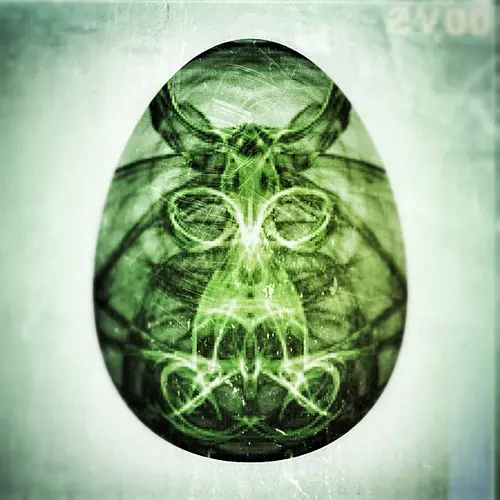
 Photo by Kunonguyen
Photo by KunonguyenAny of you that have been following my blog for a while probably remember the post Dreams, The Good, The Bad and The Ugly. In that post we discussed many different scenarios where famous and non-famous people have used their dreams as inspiration for projects. Dreams have often times been interpreted as solutions to certain problems someone may be facing. Of course we can’t forget the instances where dreams have apparently made predictions of things to come.
Of course dreams are an extremely wide and opinionated thing open to many different interpretations. So I wanted to build on my first post but there is way too much information to just include it in the other one. So I wanted to start a new one.
I have plans to create a huge series of posts regarding dreams and the odd thoughts that make them up. So this will be a long road to discovering exactly what dreams are, how they come about and we’ll discuss some of the more common perceptions and meanings for certain dream scenarios.
Why Do We Need Sleep
Of course we all know that sleep is essential for us to continue life. It helps with all of our physical, mental and emotional health not to mention our well-being. But while we are sleeping our bodies surrender conscious behaviors and this is when our unconscious mind will take over. During this time is when dreams occur.
With the advances in technology we’ve built a much better understanding of dreams and how they occur, but their true meanings are still quite a mystery. Most people believe that sleep is nothing more than a way to regenerate the mind and body. But did you know the mind and body continue to work even during sleep. So I suppose you’re wondering, if our bodies are still active during sleep, then what exactly is sleep good for.
Some of the things discovered during research regarding sleep have suggested that during sleep our minds are hard at work making updates and filing the days information and events in their proper place. Your body will also release certain hormones that are needed to repair damaged tissue and stimulate growth. All the while your body is also working to extinguish and viral or bacterial infections that are found.
It could be possible that all this random generation of information and active hormone releases could create unconscious visual states which we interpret as dreams. I kind of think our minds only remember certain parts of that information and with so much going on, some things get kind of crossed which could account for some extremely strange dreams. But we’re going to take this series to a much broader scale. Surely it isn’t that simple.
The Different Stages of Sleep
Ahh, so you knew we’d have to get into this sooner or later. Your body and mind will go through a series of four different stages of sleep throughout the night. And you don’t just cycle through these four stages and then it’s over. Your body may go through these stages several different times during the night.
Stage 1
During this first stage of sleep your body and mind both become quite relaxed and your heart rate and breathing begin to slow substantially. Your blood pressure and body temperature both decrease while your eyes may wonder from side to side.
At this point you aren’t exactly asleep, but you aren’t awake either, which can make it very easy to wake up if something disturbs you. When you first start to wake up in the morning you are experiencing a similar state of being and it’s possible to witness small hallucinations or spots floating in front of your eyes.
Stage 2
During this stage of sleep your breathing and heart rate will decrease even more and you are less likely to be effected by movement or noise of the things around you. Of course your eyes will continue to wonder from side to side until you’ve entered the third stage.
Stage 3
Now that you’ve reached the third stage of sleep, you are sleeping pretty soundly and it’s most unlikely you would wake up from a simple sound or someone walking through the room.
Stage 4
Stage four is a much deeper sleep state and is known as non-rapid eye movement. At this point your brain is no longer concerned with the conscious mind. At this point some people may become Living Zombies Among Us or possibly have night terrors if they are victim to such things.
After you’ve completed stage 4 sleep, you will move backwards through the stages again. First going back to stage 3, then stage 2, then 1 and finally this is when REM or Rapid Eye Movement takes place.
What is REM Sleep
Ok, so you’ve gone through the four stages of sleep in forward and reverse order and now you’ve hit this REM sleep stage. So what is it exactly?
It is compiled of small tiny twitches in your facial muscles and you may also have slight hand movements as well. During this stage of sleep your blood pressure, breathing and heart rate all begin to rise. Then your eyes are no longer just wondering side to side, they will be darting quite rapidly in all directions.
Since this stage is when your sleeping mind is most active, this is normally when dreams occur. Although it has been discovered that people dream in Non-REM stages as well, but REM dreams are more likely to be remembered.
A common occurrence to waking suddenly during REM is that you may feel as though someone or something is putting pressure on your chest, or holding you down. Some scientists believe this can help explain the paralyzed feeling victims of extraterrestrial experiences and abductions speak of.
The first stage of REM sleep normally only lasts around 10 minutes. But as you continue to move back and forth between the 4 stages, the REM stage will last longer each time. Normally the longest lasting REM stage is around 45 minutes.
Research shows people that have been deprived of REM sleep by being awoken are missing out on their dreams. This can cause people to become irritable and hot tempered. So this being said, sleep is quite important to our mental and physical well being. So is it safe to say that the reason we sleep is for dreaming? This too seems a bit simple, but is it really?
How to Keep Track of Your Dreams
For this final section of today’s post on dreams I’m going to go over the proper ways to keep track of your dreams and how to remember your dreams for future reference.
It is said that all of us will dream many dreams in one nights sleep, and possibly over 100,000 dreams during our lifetime. But how many of those do we actually remember? Not very many right?
But there are some things you can do to begin capturing those dreams so you can reference them at a later time. Normally when I wake I may remember a dream right when I wake up. But once I’ve gotten my coffee and read a couple of e-mails, then poof, I can’t even remember what they were about, much less any details.
Why Can’t I Remember
There are many different reasons you may not remember your dreams. Things such as medications, alcohol, not enough sleep as well as anxiety are all things that can cloud the memory of dreams. Now I’m not saying everyone should stop taking their medications or have to see a therapist in order to remember their dreams. But what I am saying is that immediately upon waking up you are more likely to remember your dreams at that moment than at any other time of the day.
The Tools You’ll Need
So one good practice to solving this riddle is to keep a scratch pad and a pen or pencil next to your bed on the nightstand. As soon as you wake up grab it and jot down anything you can remember about your dream. Now I’m not saying that you will remember your dreams every single morning. So some mornings you may have nothing to write down. But if you do remember something, write it down immediately.
Dreams will evaporate from memory extremely fast, so don’t try to wake up first and put on your slippers, just grab the pen and start writing. Sometimes the more you write, the more you will remember. Then once you’ve jotted down everything you can, take a look at it a couple of times throughout the day, you may recall extra information that you can add.
But be careful, our imaginations are quite tricky and it’s possible to think about it too much to where you begin making up additional parts to the story that you really didn’t dream. So it’s best to write the majority upon first wake.
Keeping a Dream Journal
A lot of folks keep a journal of their dreams as well. This is a great tool for organizing and maintaining a rolling log of your dreams. So take that scratch pad from the nightstand and transfer everything into the journal at a later time. Chances are your handwriting won’t be that great when you first wake up, so do your journal a favor, write in it when you’ve woken up a bit…lol
In your dream journal, be sure to write down everything you can. Such as the date the dream occurred on and anyone that you remember being in it. Of course you will want to also take note of any emotional feelings the dreams gave you along with any problems or situations you may of faced during the dreams. Be sure to jot down any symbols, landscape and colors you can remember as well. Most importantly, how did the dream end? Most of the times we won’t remember the ending for our dreams, and there’s probably a good reason for that. But just write down the last known memory from the dream you can recall.
So in conclusion, dreams are something we all have, but I believe them to be a very important part of our well-being and help aid our bodies and mind. It is always important to get plenty of rest to allow your body to go through the required stages of proper sleep.
In the next post on dreams I’ll be discussing the different types you may come across in your professional dreaming career, and there are a bunch of them. So be sure to keep an eye out for follow up posts on my collection about dreams. And most importantly people, don’t forget your scratch pad, pen or pencil and go get yourself a dream journal so you can start tracking your dreams. Soon we’ll be getting into a humongous interpretation series of what different elements in your dreams may mean. Plus we’ll analyze them so we can find out how to use them to our advantage. I wish you all the best in remembering your dreams!



Thanks for the info, really interesting. I usually dream about things that scare me at that period of time, not so pleasant 🙁
Scary dreams are quite unpleasant, I believe it’s all about channeling your thoughts before you go to sleep. Some people even say that they can not only produce the dreams they want, but take full control of what happens in them as well.
I always wanted to know why some people can always remember their dreams and why others can’t. I don’t take medications as you mentioned here. I can just occasionally remember some of my nightmares.
Well there are many contributing factors to poor dream recall. Even things such as stress and not sleeping long enough can prevent you from remembering your dreams. You can actually practice with a little meditation before sleeping and tell yourself you will remember. I think if you expect to dream and are determined to remember, then it helps.
Great tips Robert! I’ll get myself a note beside my bed so I can remember my dream from now.
I believe dreams are our brains practice for real life events. They are training the brain to release the proper chemicals, at the best time, and the proper dose, according to the situation created randomly by the brain. They help keep our brains prepared for the unexpected situations that occur in day to day life.
very well said Joey…I’m in 100% agreeance with you. I also believe it’s our minds way of filing the days events and we just get a flash of it as it’s working.
I’ve heard it said that you shouldn’t move at all on first waking, or move your head, in order to remember dreams. But quite often, I remember nothing at all when doing that. Only when I have got up, showered, had coffee…etc then suddenly I will remember a dream! Lots of details too. It’s like a quick flash of memory after I’ve got up.